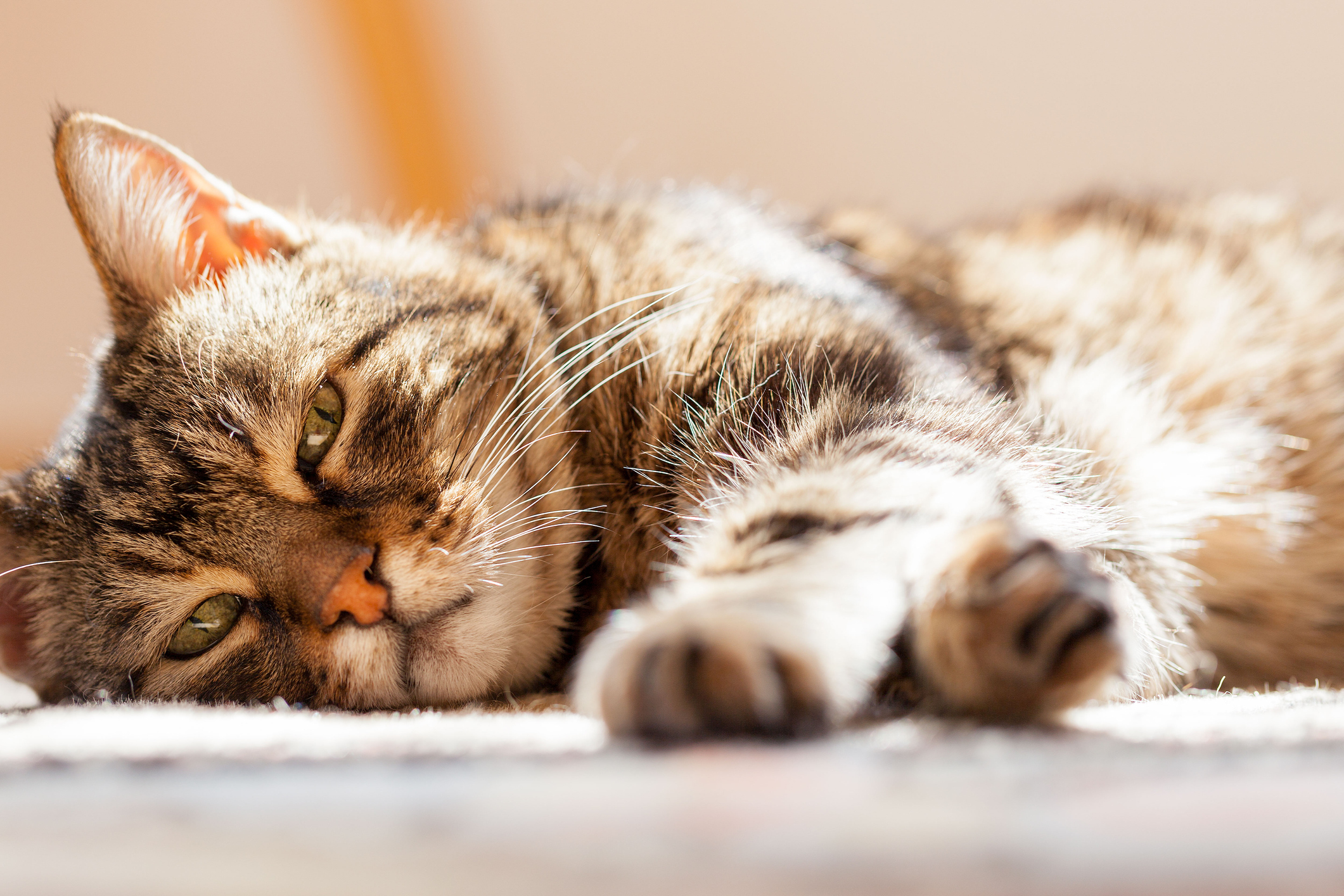
5 of the Biggest Risks to Your Senior Cat's Health
As much as we’d love for our furry friends to stay sprightly and healthy forever, the reality is that cats become more susceptible to health problems as they age. There are many reasons for these complications—general wear and tear on the body, exposure to toxins and a buildup of waste products are among the most common.
No matter what the cause, however, parents of senior cats should be aware of these problems and their signs to ensure their feline is getting the help they need as soon as possible. A health problem in your cat’s old age is not necessarily fatal—with prompt treatment, many cats can go on to live even longer lives!
There are a few health problems, in particular, that tend to afflict cats as they reach a certain age. If your cat is far from their kitten years, be mindful of these five ailments.

- Arthritis: Arthritis is perhaps the most common problem that affects middle-aged and senior cats. Unfortunately, most pet owners don’t realize their cat has arthritis because cats are very good at masking pain. Age-related arthritis typically causes the cushioning cartilage between your cat’s joints to wear down. This can be painful and cause inflammation, which leads to joint swelling and stiffness. When cats develop arthritis, they may have a more difficult time running, jumping and playing. Arthritis does not pose a direct threat to your cat’s health, but it can be very uncomfortable and should be addressed through supplementation and lifestyle modifications.
- Kidney disease: Kidney disease is one of the most common major health problems older cats experience. Throughout your cat’s life, their kidneys work hard to filter waste from the blood and expel it through urine. Over time, the kidneys can begin to fail. In some cases, this is merely caused by old age. In others, things like kidney infections or toxins contribute to kidney damage. When the kidneys stop working as well as they used to, waste products can build up in your cat’s bloodstream, making the kidneys work overtime and causing them to feel sick. Kidney disease is often characterized by excessive thirst and urination, as well as improper urination, constipation and lethargy. Although there is no cure for kidney disease, it can be effectively managed through dietary changes, kidney support supplements and medications.
- Periodontal disease: Most pet owners know that trying to brush a cat’s teeth can be next to impossible—especially if you didn’t start the habit when they were a kitten! Unfortunately, this can catch up to a cat by the time they reach an old age. Plaque buildup on the surface of the teeth can destroy healthy gum tissue and lead to a dangerous disease called periodontal, or dental, disease. Not only can this problem cause tooth decay and oral pain for your cat, but the spread of bacteria could begin to affect other parts of their body, including the heart. Bad breath, inflamed gums and obvious oral pain are key signs of this ailment.
- Cancer: Sadly, cat cancer becomes a more threatening reality the older your cat gets. It’s difficult to pinpoint the exact cause of feline cancers, but they are much more common in senior cats and can be life-threatening. Cancer in cats can take many forms, but pet parents should be on the lookout for strange lumps and bumps on your cat’s body, a loss of appetite, lethargy and sudden changes in behavior. While some cancers can be treated with aggressive methods like chemotherapy, parents of senior cats may want to make their furry friend comfortable using herbal treatments and focus on improving their quality of life.
- Hyperthyroidism: Cats over the age of 10 are more likely to develop problems with their thyroid—a small gland that produces and regulates hormones. Hyperthyroidism—an overactive thyroid—is the main thyroid issue found in cats. The hormonal imbalances caused by hyperthyroidism lead to rapid weight loss, increases in appetite, restlessness and digestive upset. Over time, hyperthyroidism can form other problems, including high blood pressure (hypertension) and heart disease.
Identifying signs of disease or pain in senior cats can be more difficult than it is for younger cats. Aging felines tend to sleep more, eat less and lose weight a little faster than normal. They may also be less interested in playing and behave a little differently.
In a younger cat, these symptoms may clue parents into a health problem. But in an older cat, you may be tempted to write them off as mere old age. It’s very important to stay vigilant while looking out for symptoms of illness and contact your vet right away when you spot them. This is also why senior cats should be seen by the vet twice a year, instead of annually.
By keeping a close eye on your senior cat’s health and doing things to accommodate their changing lifestyles, you’ll be able to keep them happy and healthy for as long as possible.


